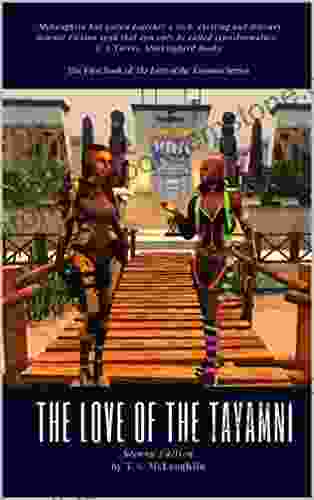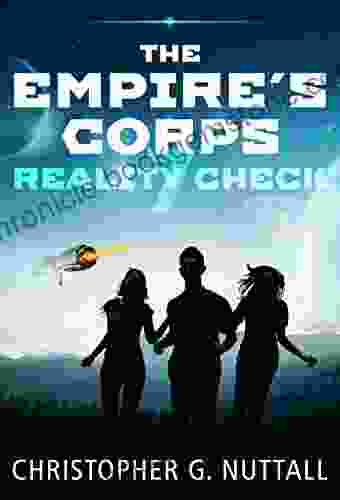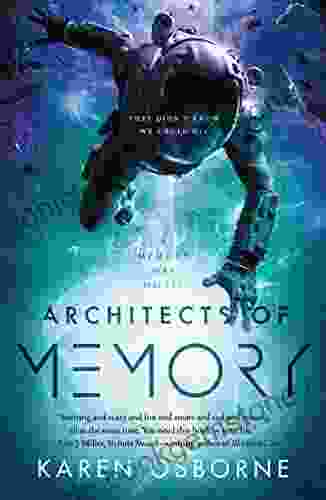Architects of Memory: The Memory War

4.1 out of 5
| Language | : | English |
| File size | : | 4901 KB |
| Text-to-Speech | : | Enabled |
| Screen Reader | : | Supported |
| Enhanced typesetting | : | Enabled |
| X-Ray | : | Enabled |
| Word Wise | : | Enabled |
| Print length | : | 345 pages |
Alzheimer's disease is a progressive neurodegenerative disorder that affects memory, thinking, and behavior. It is the most common form of dementia, and it is estimated that over 50 million people worldwide live with Alzheimer's disease.
As the number of people living with Alzheimer's disease continues to grow, so too does the need to understand the cultural consequences of this disease. How does Alzheimer's disease affect our understanding of memory, identity, and the nature of the self? How is the disease represented in literature, film, and other media? And what can these representations tell us about our own fears and anxieties about aging and death?
In her book Architects of Memory: The Memory War, cultural anthropologist Kathleen Woodward explores these questions and more. Woodward argues that Alzheimer's disease is a "cultural crisis" that has forced us to confront the limits of our understanding of memory and the self.
Woodward begins her book by examining the way that Alzheimer's disease has been represented in literature. She argues that literary representations of Alzheimer's disease have often been shaped by the dominant cultural narrative of aging and death. In these narratives, Alzheimer's disease is seen as a tragic loss of self, a descent into madness and oblivion.
However, Woodward also finds that there are other, more hopeful ways to represent Alzheimer's disease. In some literary works, Alzheimer's disease is seen as a journey of self-discovery, a chance to explore new ways of being in the world. These works challenge the dominant cultural narrative of aging and death, and they offer a more positive vision of the future for people with Alzheimer's disease.
In addition to literature, Woodward also examines the representation of Alzheimer's disease in film and other media. She argues that these representations have played a significant role in shaping public understanding of the disease. For example, the film Still Alice (2014) tells the story of a woman who is diagnosed with early-onset Alzheimer's disease. The film has been praised for its realistic portrayal of the disease, and it has helped to raise awareness of the challenges faced by people with Alzheimer's disease and their families.
Woodward concludes her book by arguing that we need to develop new ways of thinking about Alzheimer's disease. We need to move beyond the dominant cultural narrative of aging and death, and we need to find ways to celebrate the lives of people with Alzheimer's disease.
Architects of Memory: The Memory War is a groundbreaking study of the cultural consequences of Alzheimer's disease. Woodward's book provides a comprehensive overview of the way that the disease has been represented in literature, film, and other media, and she offers a new perspective on the future of Alzheimer's disease research and care.
Memory, Identity, and the Self
Alzheimer's disease is a disease of memory. It affects the ability to remember new information, and it can also lead to the loss of long-term memories. This can have a devastating impact on a person's identity and sense of self.
For people with Alzheimer's disease, the loss of memory can be a source of great distress. They may no longer be able to remember their loved ones, their home, or their past experiences. This can lead to feelings of confusion, isolation, and depression.
The loss of memory can also affect a person's ability to make decisions and to care for themselves. This can lead to a loss of independence and a need for assistance from others. In severe cases, Alzheimer's disease can lead to a complete loss of self-awareness and the ability to communicate.
The Cultural Consequences of Alzheimer's Disease
Alzheimer's disease is a global health crisis. It is the leading cause of dementia, and it is estimated that over 50 million people worldwide live with the disease.
The cultural consequences of Alzheimer's disease are far-reaching. The disease affects not only the people who have it, but also their families, friends, and caregivers. It can also have a significant impact on communities and societies as a whole.
One of the most significant cultural consequences of Alzheimer's disease is the stigma that is associated with the disease. Alzheimer's disease is often seen as a shameful disease, and people with Alzheimer's disease are often discriminated against and excluded from society.
The stigma of Alzheimer's disease can make it difficult for people with the disease to get the help and support they need. It can also lead to feelings of isolation and loneliness.
Another significant cultural consequence of Alzheimer's disease is the financial burden that it places on families and societies. Alzheimer's disease is a very expensive disease to care for, and it can often lead to financial ruin for families.
The financial burden of Alzheimer's disease can also have a negative impact on communities and societies as a whole. It can lead to a decrease in tax revenue and an increase in social welfare spending.
The Future of Alzheimer's Disease Research and Care
There is currently no cure for Alzheimer's disease, but there are a number of treatments that can help to slow the progression of the disease and improve the quality of life for people with Alzheimer's disease.
There is also a great deal of research being conducted into Alzheimer's disease. Scientists are working to better understand the causes of the disease and to develop new treatments and cures.
The future of Alzheimer's disease research and care is promising. There is a growing understanding of the disease, and there are a number of new treatments in development. It is hoped that one day there will be a cure for Alzheimer's disease, and that people with the disease will be able to live long, healthy lives.
Alzheimer's disease is a devastating disease, but it is also a disease that can teach us a great deal about ourselves.
By understanding the cultural consequences of Alzheimer's disease, we can learn more about the nature of memory, identity, and the self. We can also work to reduce the stigma of Alzheimer's disease and to provide better care for people with the disease and their families.
The future of Alzheimer's disease research and care is promising. There is a growing understanding of the disease, and there are a number of new treatments in development. It is hoped that one day there will be a cure for Alzheimer's disease, and that people with the disease will be able to live long, healthy lives.
4.1 out of 5
| Language | : | English |
| File size | : | 4901 KB |
| Text-to-Speech | : | Enabled |
| Screen Reader | : | Supported |
| Enhanced typesetting | : | Enabled |
| X-Ray | : | Enabled |
| Word Wise | : | Enabled |
| Print length | : | 345 pages |
Do you want to contribute by writing guest posts on this blog?
Please contact us and send us a resume of previous articles that you have written.
 Best Book
Best Book Page Flip
Page Flip Bookshelf
Bookshelf Literary loom
Literary loom Chapter
Chapter Bookish
Bookish PageTurner
PageTurner Bibliophile
Bibliophile Story
Story Inkwell
Inkwell Bookworm
Bookworm Labyrinth
Labyrinth Plot Twist
Plot Twist Prose
Prose Paperback
Paperback Storyteller
Storyteller Sanctuary
Sanctuary Fiction
Fiction Reading
Reading Chronicle
Chronicle Read
Read Shane Shepherd
Shane Shepherd Nicolas Forgue
Nicolas Forgue David Bayles
David Bayles Dana R Jones
Dana R Jones Jack L Grossman
Jack L Grossman Charles Scott
Charles Scott Ruth Fidler
Ruth Fidler Gilad Segev
Gilad Segev Frederick Levy
Frederick Levy Roz Goldfarb
Roz Goldfarb David Feltmate
David Feltmate Emery C F Bryant
Emery C F Bryant Nick Cook
Nick Cook Barry Hatton
Barry Hatton Roxane Gay
Roxane Gay Kenneth Kee
Kenneth Kee The Total Travel Guide Company
The Total Travel Guide Company Stephanie Peterson Jones
Stephanie Peterson Jones Amy C Balfour
Amy C Balfour Sue Kim
Sue Kim Zara Thorne
Zara Thorne Deborah Levy
Deborah Levy Abhirup Bhattacharya
Abhirup Bhattacharya Maggie Price
Maggie Price Wilma Roos
Wilma Roos Jolyn Parker
Jolyn Parker Jackie Robinson
Jackie Robinson Neil Macfarquhar
Neil Macfarquhar Rob Zombie
Rob Zombie Thami Prusent
Thami Prusent Pixie Unger
Pixie Unger Rufus Mcgaugh
Rufus Mcgaugh Chencia C Higgins
Chencia C Higgins Roy Lang
Roy Lang David Robbins
David Robbins David Larocca
David Larocca Lilly Dancyger
Lilly Dancyger Carol Hayes
Carol Hayes Allison Levy
Allison Levy Eileen Cronin
Eileen Cronin Plewaynar
Plewaynar Chandra Blumberg
Chandra Blumberg Jenny Pentland
Jenny Pentland Cheryl Briggs
Cheryl Briggs Asia Monique
Asia Monique Tom Gose
Tom Gose Michael Newberry
Michael Newberry James Omoghosa Abu
James Omoghosa Abu Peter Lasalle
Peter Lasalle Yochanan Fein
Yochanan Fein T A Mclaughlin
T A Mclaughlin Kristine Kathryn Rusch
Kristine Kathryn Rusch Matthew O Brien
Matthew O Brien Angela May
Angela May Mary Norris
Mary Norris Hieronymus Bosch
Hieronymus Bosch Irene Eizen
Irene Eizen Jami Attenberg
Jami Attenberg Books Club
Books Club Jan Hawkins
Jan Hawkins Mike Myers
Mike Myers Loretta Krupinski
Loretta Krupinski Tiffany Dufu
Tiffany Dufu Rob Goss
Rob Goss Brian Yansky
Brian Yansky John Banville
John Banville Ivy Laika
Ivy Laika Talek Nantes
Talek Nantes John Mierau
John Mierau Tamara Marie
Tamara Marie Jared Clemons
Jared Clemons Ira Sukrungruang
Ira Sukrungruang Anne Marie O Connor
Anne Marie O Connor Ace Atkins
Ace Atkins Tacarra
Tacarra John Leighton
John Leighton Tiana Laveen
Tiana Laveen Ray Bradbury
Ray Bradbury Kristen Stein
Kristen Stein Rebecca Frankel
Rebecca Frankel Adam Rogers
Adam Rogers Kim Michele Richardson
Kim Michele Richardson T A Williams
T A Williams Robin Roberts
Robin Roberts Hashim Akib
Hashim Akib Peter Tonguette
Peter Tonguette Lynn Austin
Lynn Austin Chan Park
Chan Park Addison Jane
Addison Jane Brian L Evans
Brian L Evans David Farmer
David Farmer Hans Holbein
Hans Holbein Melissa Gilbert
Melissa Gilbert Jintana Rattanakhemakorn
Jintana Rattanakhemakorn Adam Skolnick
Adam Skolnick Abigail Thomas
Abigail Thomas Abby Denson
Abby Denson Nicole Mones
Nicole Mones Carmine Rossi
Carmine Rossi Charles Solomon
Charles Solomon Adam Frankel
Adam Frankel Ada Hoffmann
Ada Hoffmann Abdulrazak Gurnah
Abdulrazak Gurnah Ilana Benady
Ilana Benady Adrian Tchaikovsky
Adrian Tchaikovsky Onethree L
Onethree L Jeremy Zenith
Jeremy Zenith Tom Von Logue Newth
Tom Von Logue Newth H Terrell Griffin
H Terrell Griffin Julius B Fleming Jr
Julius B Fleming Jr Giovanni Battista Piranesi
Giovanni Battista Piranesi Abdul El Sayed
Abdul El Sayed Sheila Williams
Sheila Williams Maturin Murray Ballou
Maturin Murray Ballou Christopher Densmore
Christopher Densmore Philip Mould
Philip Mould James Rosone
James Rosone Max Boot
Max Boot Gloria Naylor
Gloria Naylor Clare Walker Leslie
Clare Walker Leslie Michael Dimercurio
Michael Dimercurio Olivia Laing
Olivia Laing Peter T Deutermann
Peter T Deutermann Makoto Fujimura
Makoto Fujimura Gabe Baltazar
Gabe Baltazar Wendy Holden
Wendy Holden M H Johnson
M H Johnson Richard Schweid
Richard Schweid Peter Genovese
Peter Genovese Stuart Smith
Stuart Smith Gabriel Levin
Gabriel Levin K Nicole
K Nicole Timothy F Geithner
Timothy F Geithner E J Koh
E J Koh John Annerino
John Annerino Brian Jay Jones
Brian Jay Jones Friedrich Glauser
Friedrich Glauser Elizabeth George
Elizabeth George John Jennings
John Jennings Inman Learning
Inman Learning Malcolm Guite
Malcolm Guite Lisa Leonard
Lisa Leonard Rick Thompson
Rick Thompson Alan K Rode
Alan K Rode Tony Hefner
Tony Hefner Craig Martelle
Craig Martelle Jean Daive
Jean Daive Davar Ardalan
Davar Ardalan Julie Gilbert Pollard
Julie Gilbert Pollard A Hauser
A Hauser Halle Mcqueen
Halle Mcqueen Adam Mayers
Adam Mayers Stephen Greenblatt
Stephen Greenblatt Vanessa Hua
Vanessa Hua Patrick Bade
Patrick Bade Jed Alger
Jed Alger Susannah Shaw
Susannah Shaw Liesbet Collaert
Liesbet Collaert Kirsten Mckenzie
Kirsten Mckenzie Richard Wright
Richard Wright Julia C Tobey
Julia C Tobey Nato Thompson
Nato Thompson Jan Caeyers
Jan Caeyers Sheila Heti
Sheila Heti Karen Reed
Karen Reed Todd Wassel
Todd Wassel Elly Thuy Nguyen
Elly Thuy Nguyen Debbie Millman
Debbie Millman Tessa Dare
Tessa Dare Cheng Yan
Cheng Yan Wilbur Smith
Wilbur Smith Albert Alhadeff
Albert Alhadeff Margery M Heffron
Margery M Heffron William Blackwell
William Blackwell Isabella Decarlo
Isabella Decarlo John Richardson
John Richardson Jeff Brown
Jeff Brown Tara Conklin
Tara Conklin Mary Jane Hall
Mary Jane Hall Torey L Hayden
Torey L Hayden Erika Mailman
Erika Mailman Amir Tsarfati
Amir Tsarfati Helen Keller
Helen Keller Helen Mccarthy
Helen Mccarthy Natasha Knight
Natasha Knight Josh Levine
Josh Levine S K Hardy
S K Hardy Adam Gamble
Adam Gamble Bernd Schubert
Bernd Schubert Adam Selzer
Adam Selzer L Andrew Cooper
L Andrew Cooper Max Porter
Max Porter Connie Pombo
Connie Pombo Wolfgang Daunicht
Wolfgang Daunicht James G Speight
James G Speight Tim Mackintosh Smith
Tim Mackintosh Smith Ashley Kahn
Ashley Kahn Danica Winters
Danica Winters Graham Hutchins
Graham Hutchins Alyson Sheldrake
Alyson Sheldrake Roman Plesky
Roman Plesky Kindle Interactive Edition
Kindle Interactive Edition April Baker Bell
April Baker Bell Thomas Wallace Knox
Thomas Wallace Knox Victoria Aveline
Victoria Aveline Abby Hoy
Abby Hoy Jim Korkis
Jim Korkis Wolf Moon
Wolf Moon Gregory Mattix
Gregory Mattix Kennedy King
Kennedy King Lucille Ball
Lucille Ball Adam Begley
Adam Begley Sam Gennawey
Sam Gennawey Dominik Imseng
Dominik Imseng Eve Brown Waite
Eve Brown Waite Maureen Klovers
Maureen Klovers Debby Burnett Safranski
Debby Burnett Safranski Elizabeth Rusch
Elizabeth Rusch William Friedkin
William Friedkin Eloise Moran
Eloise Moran Soraya Altorki
Soraya Altorki Engineer Greg
Engineer Greg Alexander Simpson
Alexander Simpson Bill Barich
Bill Barich Nancy French
Nancy French Lara Shannon
Lara Shannon Giovanni Antonio Canal
Giovanni Antonio Canal Richard Schickel
Richard Schickel Shelli Marie
Shelli Marie Susan J Cobb
Susan J Cobb Anne Gillain
Anne Gillain David Mitchell
David Mitchell Tw Neal
Tw Neal Pam Grier
Pam Grier Diana Vreeland
Diana Vreeland Hiram Garcia
Hiram Garcia Enjeela Ahmadi Miller
Enjeela Ahmadi Miller Adam Abraham
Adam Abraham Vern Buzarde
Vern Buzarde Kassandra Lamb
Kassandra Lamb Alvin Eng
Alvin Eng Anja Grebe
Anja Grebe Ernst Haeckel
Ernst Haeckel David M Buerge
David M Buerge David Bergsland
David Bergsland Ed Andreychuk
Ed Andreychuk Frank M Rines
Frank M Rines Patrick Leigh Fermor
Patrick Leigh Fermor Polina Traore Dana Kaledin
Polina Traore Dana Kaledin Diana Cooper
Diana Cooper Sean Oswald
Sean Oswald Angela Y Davis
Angela Y Davis Naomi Finley
Naomi Finley Stephen Quiller
Stephen Quiller Julia Cameron
Julia Cameron Ben Bova
Ben Bova Chris Legaspi
Chris Legaspi Amanda Milo
Amanda Milo Stephen Flanagan
Stephen Flanagan David Annandale
David Annandale Connie Ann Valenti
Connie Ann Valenti Andrew Farago
Andrew Farago Zan
Zan Marco Polo
Marco Polo Nicola Griffith
Nicola Griffith Susan Gaber
Susan Gaber Jonathan Mooney
Jonathan Mooney Seabury Quinn
Seabury Quinn Chuck Wendig
Chuck Wendig Beatriz Williams
Beatriz Williams Nghi Vo
Nghi Vo Denese A Rodgers
Denese A Rodgers Italo Svevo
Italo Svevo Laurence Parent
Laurence Parent C S Friedman
C S Friedman Carlos L De La Rosa
Carlos L De La Rosa Jessi Dunnagan
Jessi Dunnagan Eric Little
Eric Little Illustrated Edition Kindle Edition
Illustrated Edition Kindle Edition Peter Dendle
Peter Dendle Christina Sharpe
Christina Sharpe Adam Phillips
Adam Phillips Valeria Vegas
Valeria Vegas Jessica Dunham
Jessica Dunham Lejuan James
Lejuan James Garth Stein
Garth Stein Dale Armstrong
Dale Armstrong James Webb
James Webb Kathleen Grissom
Kathleen Grissom Fritz Leiber
Fritz Leiber Alec Waugh
Alec Waugh Adam Fletcher
Adam Fletcher Robert H Ruby
Robert H Ruby Katherine A S Sibley
Katherine A S Sibley Dennis Ross
Dennis Ross Timothy P Spira
Timothy P Spira Irvin D Yalom
Irvin D Yalom Lina Chang
Lina Chang Lee Mylne
Lee Mylne Sue Hiepler
Sue Hiepler Marian Leah Knapp
Marian Leah Knapp Terry Schott
Terry Schott Anand Prahlad
Anand Prahlad Christopher G Nuttall
Christopher G Nuttall Carolyn Schlam
Carolyn Schlam Melissa Maker
Melissa Maker Chantal V Johnson
Chantal V Johnson Abbie Hoffman
Abbie Hoffman Emily Design
Emily Design Lisa Scottoline
Lisa Scottoline Jenny Smith
Jenny Smith Sadaf Farooqi
Sadaf Farooqi Jorge J E Gracia
Jorge J E Gracia Malaka Gharib
Malaka Gharib Lamar Neal
Lamar Neal Eerie Von
Eerie Von Sam Wasson
Sam Wasson Fiona Stocker
Fiona Stocker Errol Fuller
Errol Fuller Jessica Mellow
Jessica Mellow Tanya Angelova
Tanya Angelova Mark Amerika
Mark Amerika Sam Zell
Sam Zell Michael Showalter
Michael Showalter M Jacobs
M Jacobs Deesha Philyaw
Deesha Philyaw Dean Wesley Smith
Dean Wesley Smith Keisha J
Keisha J Jennifer Lilya
Jennifer Lilya Yvonne Tasker
Yvonne Tasker Ian Nathan
Ian Nathan John Sandford
John Sandford Adriana Trigiani
Adriana Trigiani Agathe Trapp
Agathe Trapp Alice Dews
Alice Dews Ashley C Ford
Ashley C Ford Zain Deane
Zain Deane Tao Wong
Tao Wong Morgan Richard Olivier
Morgan Richard Olivier Michelle Houts
Michelle Houts Keith Whiting
Keith Whiting George Stietz
George Stietz Adina Hoffman
Adina Hoffman Bob Miglani
Bob Miglani Robert Beverly Hale
Robert Beverly Hale Edgar Bergen
Edgar Bergen Chris Patten
Chris Patten Danie Ware
Danie Ware Eric Scigliano
Eric Scigliano Gordon Theisen
Gordon Theisen Douglas R Hall
Douglas R Hall Karen Osborne
Karen Osborne Chelsea Handler
Chelsea Handler Jeffrey Kluger
Jeffrey Kluger Rob Zabrecky
Rob Zabrecky Yvonne Navarro
Yvonne Navarro Rusty Ferguson
Rusty Ferguson Mallory Monroe
Mallory Monroe April Vollmer
April Vollmer Keith Van Sickle
Keith Van Sickle Carolyn Burke
Carolyn Burke Benjamin Kerstein
Benjamin Kerstein Helen Fremont
Helen Fremont Jennifer S Alderson
Jennifer S Alderson Manuel Lima
Manuel Lima Stevie Salas
Stevie Salas Viajo Logo Existo
Viajo Logo Existo Esther Henry
Esther Henry John Kenneth Muir
John Kenneth Muir Cynthia D Bittinger
Cynthia D Bittinger Annette Marie
Annette Marie Peter Jenkins
Peter Jenkins Julian E Zelizer
Julian E Zelizer Stacey Weaver
Stacey Weaver Adolf Hungry Wolf
Adolf Hungry Wolf Patrice Balark
Patrice Balark Jamie Wesley
Jamie Wesley Ted Orland
Ted Orland Rob Sinclair
Rob Sinclair Charles Darwin
Charles Darwin Kelle Hampton
Kelle Hampton Sarah Mccartney
Sarah Mccartney Henry Cejudo
Henry Cejudo John Schreiner
John Schreiner Colin Odell
Colin Odell Hope Jahren
Hope Jahren Jade Snow Wong
Jade Snow Wong Maurice Delafosse
Maurice Delafosse Ediciones Puentesdeluz
Ediciones Puentesdeluz Misba
Misba Bill O Neill
Bill O Neill Virginia Lia
Virginia Lia Abby Lee Miller
Abby Lee Miller Miriam Wenger Landis
Miriam Wenger Landis Drew Harrison
Drew Harrison Vova Bo
Vova Bo James D Prescott
James D Prescott Lawrence Winkler
Lawrence Winkler Caius A Mauricette
Caius A Mauricette Brin Jonathan Butler
Brin Jonathan Butler Stephen Laskevitch
Stephen Laskevitch Amarie Avant
Amarie Avant Randa Jarrar
Randa Jarrar Craig A Falconer
Craig A Falconer Jed Perl
Jed Perl Adam Gidwitz
Adam Gidwitz William Joseph Hill
William Joseph Hill Aaron Sanchez
Aaron Sanchez Adam Tetlow
Adam Tetlow Abby Stein
Abby Stein Michael Massen
Michael Massen Nancy Skolos
Nancy Skolos Vivian Jeanette Kaplan
Vivian Jeanette Kaplan Paul Clayton
Paul Clayton Kal Spriggs
Kal Spriggs Michael H Hodges
Michael H Hodges Ruy Castro
Ruy Castro Rodney Barker
Rodney Barker Jay Narayan
Jay Narayan Charles River Editors
Charles River Editors Sandra Shpilberg
Sandra Shpilberg Dani Cavallaro
Dani Cavallaro Beverly Grondin
Beverly Grondin Robin Gaby Fisher
Robin Gaby Fisher Traci Bautista
Traci Bautista Dean Heath
Dean Heath Thomas Sparr
Thomas Sparr Dr Steven Gardner
Dr Steven Gardner Josh Law
Josh Law Alice Childress
Alice Childress Gabrielle Reece
Gabrielle Reece Suzanne Ostersmith
Suzanne Ostersmith Rachel Shirley
Rachel Shirley Alexandra Billings
Alexandra Billings Wooden Leg
Wooden Leg Walter E Little
Walter E Little Jackie Faasisila
Jackie Faasisila Hirokazu Miyazaki
Hirokazu Miyazaki Tom Brierton
Tom Brierton Samuel Best
Samuel Best Mary Hollingsworth
Mary Hollingsworth Aaron Lansky
Aaron Lansky David Brendel
David Brendel Adam Nayman
Adam Nayman Abbe Rolnick
Abbe Rolnick Pedro Mendes
Pedro Mendes Christopher Hinz
Christopher Hinz Kendra Sumter
Kendra Sumter Scott Sigler
Scott Sigler Peter Kazaks
Peter Kazaks Sudhir Hazareesingh
Sudhir Hazareesingh Le Roy H Appleton
Le Roy H Appleton Maurizio Onnis
Maurizio Onnis Fritz Lang
Fritz Lang Lynda Williams
Lynda Williams Tim Mulliner
Tim Mulliner Evan Currie
Evan Currie Jacqueline Woodson
Jacqueline Woodson Abe Streep
Abe Streep Ricardo S Sanchez
Ricardo S Sanchez Eric Van Lustbader
Eric Van Lustbader Michael Reardon
Michael Reardon J A Taylor
J A Taylor Michael Atavar
Michael Atavar Theodore Sturgeon
Theodore Sturgeon Michael Langlois
Michael Langlois Ferial Youakim
Ferial Youakim Wahida Clark
Wahida Clark Adrian Nicole Leblanc
Adrian Nicole Leblanc Adrian Shaughnessy
Adrian Shaughnessy Robert C Cumbow
Robert C Cumbow Joe Cartwright
Joe Cartwright Peter Schwenger
Peter Schwenger Paolo Hewitt
Paolo Hewitt Toya Banks
Toya Banks Helen Zia
Helen Zia Fx Holden
Fx Holden Catherine V Holmes
Catherine V Holmes David Marusek
David Marusek Laura Lam
Laura Lam Francis Parkman
Francis Parkman Peter C Smith
Peter C Smith Rita Goldberg
Rita Goldberg Andre Norton
Andre Norton Douglas Mccall
Douglas Mccall Candi B
Candi B Michael Harkins
Michael Harkins Tom Delonge
Tom Delonge Marissa Cox
Marissa Cox Kathleen Rooney
Kathleen Rooney Arthur Schopenhauer
Arthur Schopenhauer Deyan Sudjic
Deyan Sudjic Adam Fortunate Eagle
Adam Fortunate Eagle Robert J Serling
Robert J Serling Carla Rahn Phillips
Carla Rahn Phillips Dennis Vanderkerken
Dennis Vanderkerken Dynamo
Dynamo Alexander Van Millingen
Alexander Van Millingen Brian Lockman
Brian Lockman Ben Pester
Ben Pester Julia Alvarez
Julia Alvarez Actus
Actus Aaron Linsdau
Aaron Linsdau Anne Green Gilbert
Anne Green Gilbert Adam Troy Castro
Adam Troy Castro Pamela Craft
Pamela Craft Ilarion Merculieff
Ilarion Merculieff Ross King
Ross King Adolph L Reed
Adolph L Reed Angela Dejong
Angela Dejong Ilise Benun
Ilise Benun Julie Hoverson
Julie Hoverson Etienne De Backer
Etienne De Backer Jim Butcher
Jim Butcher Linda Hartley
Linda Hartley Dan Tranberg
Dan Tranberg Edward K Kaplan
Edward K Kaplan John Bester
John Bester H P Lovecraft
H P Lovecraft Franklyn Sills
Franklyn Sills Aarti Namdev Shahani
Aarti Namdev Shahani John Biggar
John Biggar David Kidd
David Kidd R B Herkes
R B Herkes Rod Kluzki
Rod Kluzki Rochelle Spencer
Rochelle Spencer Andrea Linett
Andrea Linett Elizabeth Leane
Elizabeth Leane Ellen Ward Lopez
Ellen Ward Lopez Theo Coster
Theo Coster Bill Sherk
Bill Sherk Amber Share
Amber Share Lisa Jones
Lisa Jones Karen Rose Smith
Karen Rose Smith Giorgio Vasari
Giorgio Vasari Jeremy Bai
Jeremy Bai Laure Paillex
Laure Paillex Barbara Laine
Barbara Laine Kerry Colburn
Kerry Colburn Adriana Licio
Adriana Licio Darien Gee
Darien Gee Adrian Matejka
Adrian Matejka Rachel Aukes
Rachel Aukes Stephen Mack Jones
Stephen Mack Jones Dick Cluster
Dick Cluster Nat Segaloff
Nat Segaloff Sally Field
Sally Field Cavan Scott
Cavan Scott Mary S Lovell
Mary S Lovell Olita Design
Olita Design Ivan So
Ivan So John Scherber
John Scherber Penny Brown
Penny Brown Mercedes Lackey
Mercedes Lackey Rohan M Vider
Rohan M Vider Sandra Staple
Sandra Staple Joanna Goss
Joanna Goss
Light bulbAdvertise smarter! Our strategic ad space ensures maximum exposure. Reserve your spot today!

 Jermaine PowellThe Natural History, Art, and Discovery of the Birds of Paradise With Rare...
Jermaine PowellThe Natural History, Art, and Discovery of the Birds of Paradise With Rare... Branson CarterFollow ·9.5k
Branson CarterFollow ·9.5k D'Angelo CarterFollow ·13.9k
D'Angelo CarterFollow ·13.9k Arthur MasonFollow ·3.2k
Arthur MasonFollow ·3.2k Elliott CarterFollow ·18.3k
Elliott CarterFollow ·18.3k Bernard PowellFollow ·16.3k
Bernard PowellFollow ·16.3k Beau CarterFollow ·9.8k
Beau CarterFollow ·9.8k Tom ClancyFollow ·13.3k
Tom ClancyFollow ·13.3k Dallas TurnerFollow ·15k
Dallas TurnerFollow ·15k

 Allen Ginsberg
Allen GinsbergThe True Story of One Family's Journey from War-Torn...
In the heart of Europe,...

 Noah Blair
Noah BlairThe Enduring Love of The Tayamni Second Edition: A...
The Tayamni...

 Frank Mitchell
Frank MitchellThree Young Mothers And Their Extraordinary Story Of...
In the face of adversity,...

 Angelo Ward
Angelo WardReality Check: The Empire Corps Unmasked
In the labyrinthine realm of global...
4.1 out of 5
| Language | : | English |
| File size | : | 4901 KB |
| Text-to-Speech | : | Enabled |
| Screen Reader | : | Supported |
| Enhanced typesetting | : | Enabled |
| X-Ray | : | Enabled |
| Word Wise | : | Enabled |
| Print length | : | 345 pages |














